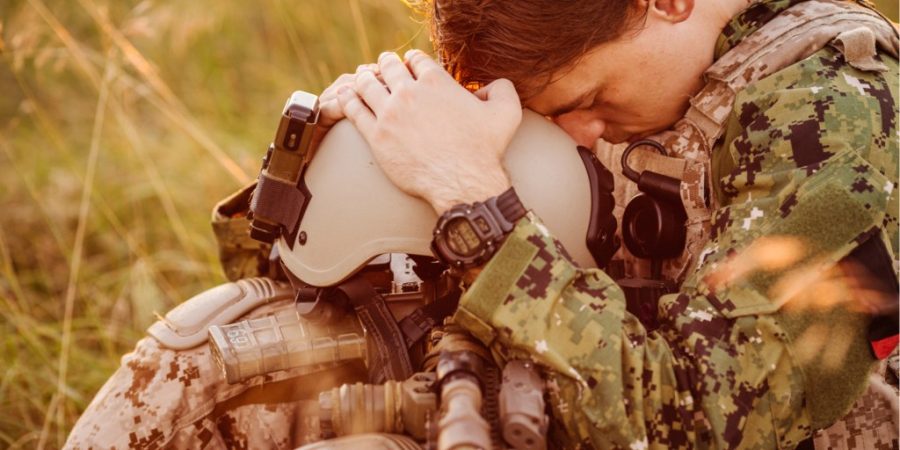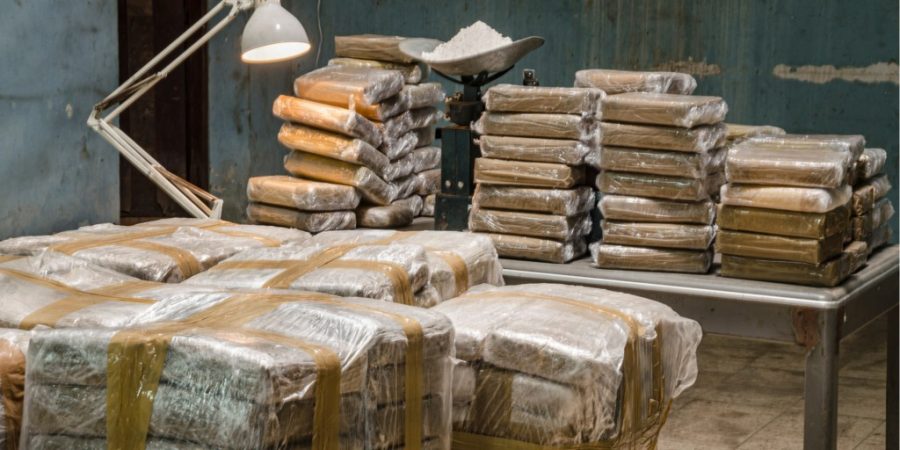
Finding the right kind of cocaine addiction treatment for veterans can feel like finding a needle in a haystack. While there are plenty of traditional cocaine rehabs in Florida, it can be hard to find treatment centers that fit your needs. This is because veterans walk a unique path through life and therefore are in need of specialized addiction care.
If you are one of the many veterans who struggles with cocaine addiction and you aren’t sure what your next steps should be, this article is for you. Find more information below on cocaine, veterans’ relationship to this highly addictive substance, and reliable cocaine addiction treatment options.
Table of Contents
Fast Facts About Cocaine

When you think of cocaine, you probably have some idea of what it looks like and its side effects, but the truth behind this substance might surprise you. Here are five fast facts about cocaine:
- Cocaine use is permitted, though rarely, for specific medical purposes; however, recreational use of cocaine is always illegal because it is so highly addictive.
- Cocaine is a strong stimulant, meaning that it impacts the body immediately after use in addition to creating long-term side effects.
- Users snort, smoke, or ingest cocaine in order to get the “high” effect.
- On the streets, cocaine is often mixed with other substances, such as fentanyl, to make it more potent, addicting, and deadly to users—usually without their knowledge. This has resulted in an increase of fatal cocaine overdoses.
- Out of all substance use disorders, cocaine addiction treatment is one of the most needed programs for veterans.
There’s so much more to learn about the connection between veterans’ experiences and cocaine use. So, why do so many veterans turn to cocaine? And what can be done about veterans struggling with a cocaine addiction?
Why Do Veterans Struggle with Cocaine Addiction?
When veterans return home after their time serving, it can be extremely challenging to readjust to civilian life. Finding work, bonding with family, and even doing day-to-day tasks can feel like impossible hurdles. For some veterans, this is because of physical injuries that occurred during service. For others, the scars are emotional.
Mental health issues are very prevalent for veterans as a result of the experiences they had while serving. Being a service member means taking on certain risks, and the memories of those experiences that military personnel faced don’t just disappear when they return home.
Issues like post-traumatic stress disorder (PTSD) are serious concerns for veterans, especially when the symptoms go untreated. The United States Department of Veterans Affairs reports that as many as 11 to 30 percent of veterans, depending on the time served, are diagnosed with PTSD.
Symptoms of PTSD to look out for would be:
- Flashbacks of the trauma
- Avoidance of triggers (crowded places, loud noises, etc.)
- Persistent anxieties or being “on edge”
- Mood and behavior changes
- Substance use disorders
Of course, it’s impossible to know the exact impact of PTSD on veterans because not every service member seeks help for their mental health. Too often, this isolation that veterans face leads to their death. Tragically, a large percentage of all people who lose their lives to suicide in the United States are veterans.
Any type of pain, whether physical or emotional, can leave veterans feeling helpless and hopeless. Unfortunately, this is often where cocaine rears its head. Veterans sometimes use cocaine, or other drugs and alcohol, to cope with the discomfort of trauma. Studies actually show a link between substance use disorders and PTSD. Cocaine might numb the pain temporarily, but it will never get rid of it completely. And that’s part of what makes cocaine addiction treatment for veterans so essential.
In actuality, having a cocaine dependence can actually make veterans’ mental health worse—not to mention the physical dangers this highly addictive substance can create. Examples of short- and long-term side effects of cocaine use, according to the National Institute on Drug Abuse, include:
- Nausea
- Changes in sleep patterns
- Feeling restless
- Fever
- Anxiety
- Sinus damage
- Weight loss
- Overdose or even death
This goes to show the importance of getting cocaine addiction treatment. Though it may not seem like it at first glance, there are many resources and drug rehab options out there for veterans who are struggling with cocaine use disorders.
Cocaine Addiction Treatment for Veterans in Florida

Treatment options for cocaine addiction are always improving with time. While many addiction centers are capable of providing the standard level of care that a civilian may need for a cocaine dependency, these facilities aren’t always in tune with the specific needs of veterans. Truthfully, the only people who fully understand what veterans need are other veterans who have been through the process.
This is why at Heroes’ Mile, we pride ourselves on being a treatment center that was built from the ground up by veterans in order to serve other veterans who are in need of assistance. For veterans with cocaine addiction or any type of substance use disorder, we provide unique, veteran-focused care. This care takes into account the experiences that veterans have been through to address the physical, emotional, and spiritual obstacles that can stand in the way.
In our residential treatment program, for example, veterans have the opportunity to find recovery in a sober, supportive environment. Certain therapeutic approaches that veterans have in residential treatment involve:
- Safe and effective detox
- Cognitive behavioral therapy
- Eye movement desensitization and reprocessing (EMDR) therapy
- Support groups
- Art therapy
- Recreational therapy
- Job preparedness training
All cocaine addiction treatment at Heroes’ Mile comes from evidence-based practices, meaning that it is tried and true to work for veterans. Not only do these treatment approaches address the physical and emotional aspect of addiction, but they help veterans create long-term connections with fellow veterans by their side as well as to the communities surrounding them.
Treatment for veterans should always be about more than just the drug dependency. It should also include giving veterans a skillset of coping strategies, life skills, and resources that they can use in times of need well after the treatment course has concluded. This is also why we offer alumni resources through Heroes’ Mile. Here, we’ve always got your six!
To get more information on cocaine addiction treatment or any of the other services we provide to our veterans at Heroes’ Mile, give us a call at 888-838-6692. Alternatively, you can fill out a confidential form with your questions or to begin the admissions process today. No matter the struggles you’ve encountered, recovery is possible.
The post Cocaine Addiction Treatment for Veterans appeared first on Heroes’ Mile Veterans Recovery Center.
Source
Original Author: Heroes’ Mile

